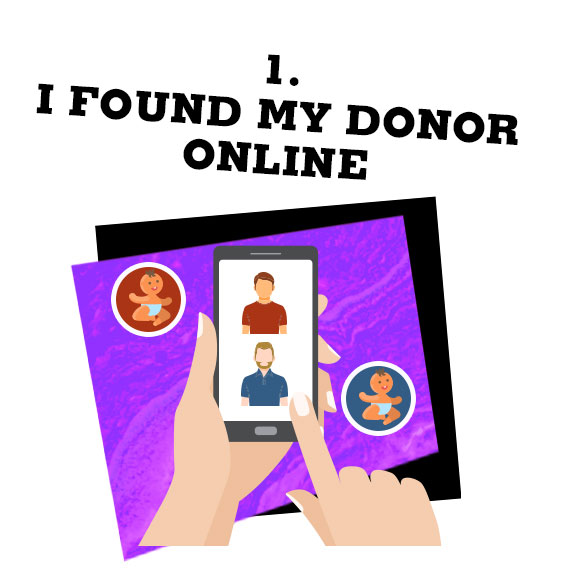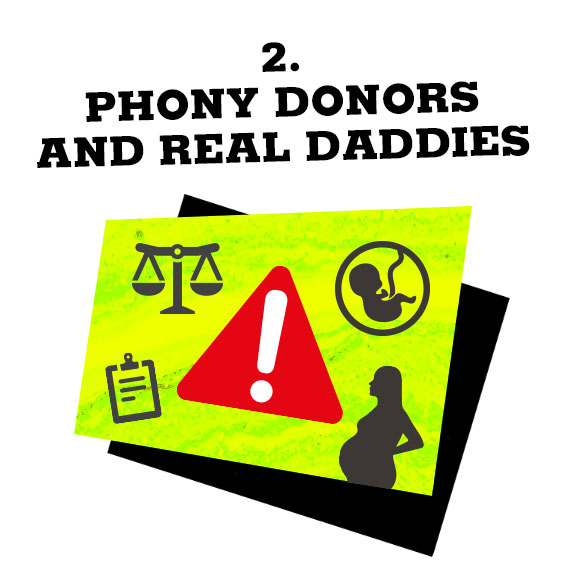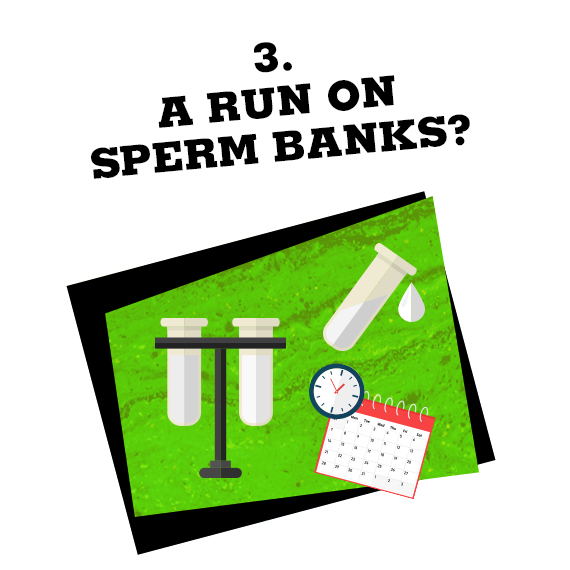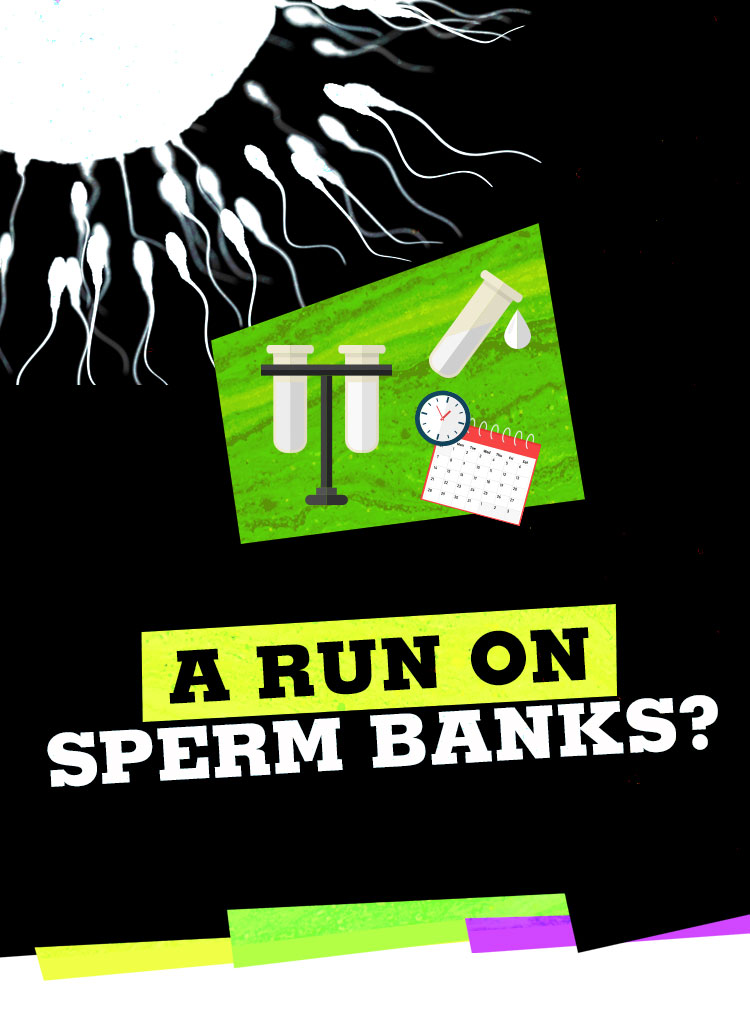When it comes to medically assisted procreation (MAP), there is no greater authority in France than Professor René Frydman, nicknamed “Monsieur PMA” after the French acronym for the medical procedure he helped pioneer. It’s been 37 years since Frydman created the country’s first test-tube baby, and the eminent gynecologist and obstetrician is frustrated at the lack of progress since.
“Every woman who wants to have a baby should have the right to medical assistance in the best possible conditions,” he decrees, lamenting the fact that in the year 2019 a large segment of France’s female population still does not have access to fertility treatment.
Under current French law, MAP is restricted to heterosexual couples who are either married or have been in a relationship for at least two years. “As a result, because we don’t offer single and homosexual women this opportunity, we’re forcing the development of alternative methods,” the professor fumes, referring to France’s booming black market for sperm.
Frydman blames politics for the slow pace of reform, particularly France’s conservative forces “who want to protect the ‘traditional’ family, all the while forgetting that 50 percent of all couples end up in divorce, that there is a huge number of single-parent families and that society has evolved”.
The idea of extending MAP to all French women is supported by two thirds of the population, according to a survey published by national pollster Ifop on September 13. It was a campaign promise of France’s centrist President Emmanuel Macron – and of his Socialist predecessor François Hollande too.
Macron’s government has repeatedly postponed the introduction of a draft bill ending the discrimination over women’s rights, blaming the delay on domestic crises such as the so-called “Yellow Vest” protests that swept the country last year. Critics, however, say the government simply fears a repeat of the backlash Hollande experienced when forcing through his gay marriage bill in 2013.
“La Manif Pour Tous”, the conservative group that campaigned against Hollande’s proposals back then, has already promised it will take to the streets again to oppose Macron’s proposed MAP legislation. But amid mounting pressure from women’s and LGBT rights groups, French lawmakers are finally due to start debating the bill on September 24.
Nicolas Faget
If approved, the legislation “will have a huge impact” on the lives of thousands of women across the country, says Nicolas Faget, a spokesperson for the Association of Gay and Lesbian Parents and Future Parents (APGL).
“The number of people opting for artificial inseminations at home, in which you run the risk of being infected with the HIV virus or other STDs, is bound to decrease,” argues APGL’s Faget. “Because why would you even consider that when you can opt for a medically assisted process? It’s a no brainer. The two can’t even be compared.”
As well as extending fertility treatment to all women, the bill will help clarify the parental rights of lesbian couples, allowing the partner of a biological mother to recognise the child as soon as it is born. “Up until now, the French justice system hasn’t protected these families at all,” Faget says, noting that his association deals with an average of 10 cases per year in which donors have claimed paternity of children born to lesbian couples.
Children’s rights are also set to expand under the proposed legislation, which partially lifts the anonymity sperm donors are currently entitled to. As a result, children who wish to will have the right to contact their biological fathers from the day they turn 18.
Doctor Céline Chalas
So will the reform spell the death of the underground sperm market? Not so fast, experts warn.
While Faget hopes that the new rules will eventually allow women to bring their own donors to the fertility clinic, “like a friend or a sibling of a partner”, he acknowledges that an immediate shortage of sperm donors will inevitably keep the black market afloat – at least in the short term. Others, like Paris-based doctor Céline Chalas, are somewhat more alarmist, pointing to the threat of a severe shortage of semen as single women and lesbian couples are added to already lengthy waiting lists.
“We expect the number of demands to double or even triple, but not the number of donors,” Chalas warns. “So at least in the short term it seems pretty clear that we will see a shortage.”
According to the most recent figures released by the national biomedicine agency, France’s sperm bank collected samples from a grand total of 363 donors in 2016 – well short of the numbers available on the black market. The gap between supply and demand means that the average waiting time for MAP procedures is today estimated at between 12 and 18 months. But with single women and lesbian couples also lining up, those waiting times are expected to at least double.
Doctor Céline Chalas
One reason for the dearth of sperm donors is the absence of remuneration. While donors in Denmark can be paid more than €500 per month for their semen, all donations must be free in France – a principle doctors and politicians are both attached too. Another factor is the lengthy vetting process donors have to go through, including interviews with psychologists and biologists, along with fertility and chromosome tests, and screening for possible STDs. Only the candidates who clear all tests and fit within the 18-45 age bracket are accepted.
“Not everyone has the patience to go through all that,” Chalas says, noting that only 50 percent of donor candidates at her clinic tick all the boxes.
Finding – or retaining – suitable candidates will be even harder once donor anonymity is lifted, the doctor adds. “The donors we already have and who wish to stay anonymous won’t come here anymore,” Chalas explains. “At least in the beginning, this will result in lower donor numbers,” she adds, anticipating a drop of at least 20 percent.
Another unwanted side-effect of the proposed change to anonymity rules is the threat this will entail for existing sperm stocks. According to Chalas, samples provided by anonymous donors are likely to be destroyed once they no longer comply with the law. Should this happen, “we will find ourselves in a situation where we have almost no active donors left, a demand that is two-to-three times higher than before, and no stocks,” she warns. “It will be very difficult for us.”
Professor René Frydman
With French lawmakers unlikely to budge on the principle of free donations, Chalas is pinning her hopes on public awareness campaigns to help CECOS recruit a new generation of donors. “The time to act is now,” she urges.
In his office at the Hôpital Foch, on the western outskirts of Paris, Professor Frydman pours scorn on the government’s last, lackluster campaign. “No one even remembers it,” he scoffs, before listing a number of initiatives he believes would be more effective.
“What I want to see in centres like this is a designated person – a nurse, a midwife or a specialised doctor – who is present on specific days of the week to inform people,” Frydman says. “And on other days he or she would work at an information stand at other hospitals.”
Giving doctors freedom to address the issue in public would also help, he adds: “Today, I can’t even go to the university next door and lecture on egg or sperm donations!”




